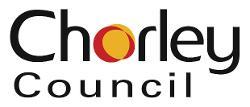Children and Young People Safeguarding Policy 2022
5. Safeguarding Code of Conduct for all Council representatives
Although it is impractical to provide definitive instructions applying to every situation when Chorley Council representatives come in to contact with children, the following points cover the standards of behaviour expected of all representatives in order to protect both themselves and the individuals they come in to contact with, and are supplementary to the existing Chorley Council Code of Conduct.
All Staff must:
- implement this Policy at all times.
- never engage in rough, physical or sexually provocative games, including horseplay.
- never share overnight accommodation with a child or young person.
- never allow or engage in any form of inappropriate touching. The main principles of touching are:
- It should always be in response to the individual's needs.
- It should always be appropriate to the individual's age/stage of development.
- It should always be with the individual's permission.
- never allow the use of inappropriate language to go unchallenged.
- never physically restrain a child or young person, unless the restraint is to prevent physical injury to the individual or to another person.
- never make sexually suggestive comments, even in fun.
- never reduce a child or young person to tears as a form of control.
- never allow allegations to go unchallenged, unrecorded or not acted upon.
- never do things of a personal nature that an individual can do for himself or herself or that a parent can do for them.
- never invite or allow children stay with you at your home unsupervised.
- never allow children to be left unattended or placed with members of staff, for intense and substantial periods, who have not been subject to an enhanced Disclosure and Barring Service check.
With the exception of emergencies staff must:
- never have children in their own vehicle, unless parents have been notified. (Where circumstances require the transportation of children, another Chorley Council representative must be present and the driver must have adequate insurance to use their vehicle for work. In extreme medical emergencies where it is required to transport a child or young person on their own it is essential that another Chorley Council representative or the parent is notified immediately.)
- avoid where possible taking an individual to the toilet unless another adult or group of children is present.
- never spend time alone with a child or young person. If you find you are in a situation where you are alone with a child or young person make sure you can be clearly observed by others or that you have gained the consent of the parent (for example on a home visit if the parent leaves the room for a period of time).
It may occasionally be necessary for staff or volunteers to do things of a personal nature for children. In doing so appropriate consents should be taken and any such task should be completed in the way that gives you most protection. Be responsive to a person's reactions, if a person is fully dependent on you, talk through what you are doing and give choices where possible. This is particularly so if you are involved in any dressing or undressing of outer clothing, or where there is physical contact, sports contact, lifting or assisting an individual to carry out particular activities. Representatives should avoid taking on the responsibility for tasks for which they are not appropriately trained.
Implications for representatives
Representatives who breach the code of behaviour shall be subject to the Council's disciplinary procedures. If an allegation is made against a representative the matter shall be investigated.
Further Guidance
Work experience placements
Special consideration must be made with regard to young people on work experience placements with the Council (and Council services).
In the first instance both work experience students and supervisors should follow the safeguarding protocols of the organisation which has arranged the placement with the Council, who should have their own safeguarding procedures in place.
It is the responsibility of managers to ensure that adequate provisions are made to ensure that staff working in an office based situation employ safe working practices and are not placed in a situation where they are left unsupervised with Child/Young Person on a work experience placement or an employed under 18 year old. Advice will be given by Designated Safeguarding Children Officers if required.
General advice from the Lancashire Education and Business Partnership with regard to transporting children and young people in vehicles, who are on a placement for a maximum period of 10 days, then a DBS disclosure is not required. However any long term placement, ie. 3 months or more then a disclosure may be appropriate and should be discussed with a DSCO and/or HR and OD team..
The vehicle used must be fully insured including for business use.
It is good practice to ensure that Council representatives do not put themselves at risk of having allegations made against them, and therefore where possible should limit their unsupervised access to the child. This also applies within an office environment where everyone else has left and the child may be left with just one employee.
Staff should follow the Council's Code of Conduct for all representatives and the guidance for safe working practices laid out in this policy.
Where this is unavoidable representatives should always follow the Council's guidance on best practice and use common sense to safeguard themselves from allegations if they have unsupervised access to a work experience student, particularly if transporting young people.
Storing Data relating to Children and Young People
Where the Council holds children's data in relation to services, especially where there is sensitive personal data collected such as medical conditions this information should be held in line with requirements for the Data Protection Act.




